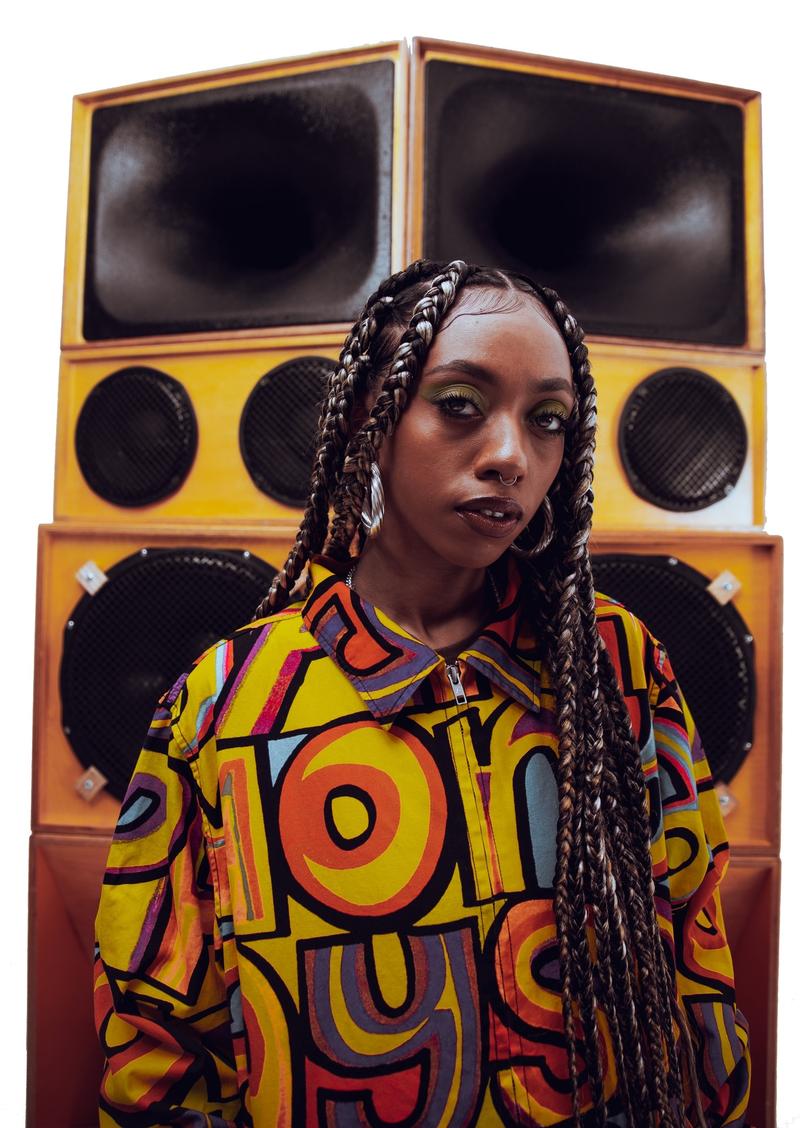
Week of April 15: This week, Nia Archives’ raving debut, Leyla McCalla’s African journey, and Shabaka Hutchings’ unlikely flute club. Plus Alice Merton and Lizz Wright.
Nia Archives Revives/Reshapes The Sounds of 90s Electronic Dance Music
The English singer Nia Archives (born Dehaney Nia Lishahn Hunt) has just released her debut LP, Silence Is Loud, a bracing mix of indie rock, of-the-moment hyperpop, and the sounds of 90s rave styles like jungle and drum and bass. Those electronic music genres have enjoyed a bit of a renaissance lately, especially in Britain, and in Nia Archives’ hands they sound contemporary and urgent again. This track, “Unfinished Business,” has a simple melody that almost sounds like a playground chant, a feeling amplified by the multitracked vocals and then by an actual chorus of kids. It’s fun, and slightly frantic, even as the song’s narrator is confronting her suspicions that “you have unfinished business somewhere else.”
Leyla McCalla Follows The Road Back To Africa
In her last album, Breaking The Thermometer, Leyla McCalla created a song cycle about the people who risked, and sometimes lost, their lives bringing Radio Haiti to the people of that troubled country. Her new LP is Sun Without The Heat, and while she’s back to singing in English, if anything her reach is even more extensive here. One song is a rewrite of an Ethiopian pop song, others look to Brazilian tropicalia and West African highlife for inspiration. This song, “Open The Road,” uses the clean but chattering electric guitar sound of West African pop, although rock chords come crashing in during the refrain. In it, McCalla sets up the album’s theme of using love and rejecting fear in the journey to be free.
Shabaka Hutchings and Andre 3000: A High-Profile Flute Club
London’s Shabaka Hutchings spent years building his reputation as a sax player and bandleader, with the essential London jazz quartet Sons Of Kemet, the psych-cosmic trio The Comet Is Coming, and his South African group Shabaka & The Ancestors. But his new solo album, Perceive Its Beauty, Acknowledge Its Grace, is built around Shabaka’s interest in flutes from around the world. Much of the album has a meditative vibe, and a formidable guest list. On “I’ll Do Whatever You Want,” Shabaka is joined by another artist who made a surprising pivot to flute music: Andre 3000, the rapper who was half of Outkast. The two flutes, Shabaka’s from Japan, Andre’s from Mexico, dip and swirl like butterflies over an electronic accompaniment by the British producer Floating Points. Esperanza Spalding and Marcus Gilmore join the rhythm section on what might be the most (relatively) uptempo track on the album; and the final two minutes sees zither-player and ambient music hero Laraaji singing a wordless vocalise over an ensemble seemingly intent on recreating the sounds of a Central American jungle.
Lizz Wright’s New LP Mixes Up Genres and Repertoire
Lizz Wright is usually referred to as a jazz or gospel singer, and over the past 20 years she has certainly sung both of those styles in her rich alto voice. But she’s also comfortable with blues and R&B and the Great American Songbook. Her latest album, called Shadow, features striking versions of songs by Cole Porter, Sandy Denny, and others. And it includes a number of Lizz Wright’s own songs, which wander freely through the many styles of American music. This one, called “Your Love,” features a propulsive bass line from Meshell Ndegeocello (and Brandee Younger on harp), as well as a catchy chorus that struts across the intersection of soul, R&B, pop, and jazz.
Alice Merton Asks “The Question Of All Question”
Alice Merton is probably best known for her 2016 song “No Roots,” which has found its way into American TV and something like a million TikTok videos. But Merton actually has plenty of roots: born in Germany but with an Irish father, stints growing up in the States, Canada, and Germany, and now living in London. No wonder that figuring out who you are is a recurring theme in her songs, including those on her new EP, Heron. This track, "how well do you know your feelings?," is built on an electronic keyboard sound reminiscent of 80s bands like New Order, Depeche Mode, and the like, but the song also features the London Contemporary Voices adding a grand, emotional sweep to the refrain.
